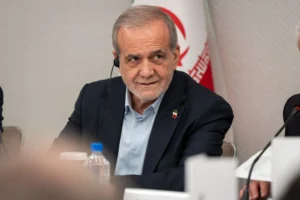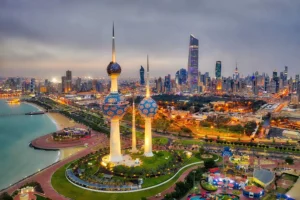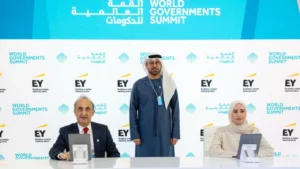
Indian non-residents, working and living in the UAE often save more money on their income than other ex-pat communities.
But what inspires their self-discipline in financial matters?
In India, Fixed deposit alternatives are the quickest and most straightforward, with an interest rate of 9% compared to 2 or 3% in the UAE. India is a more desirable location to preserve assets.
The Economist Intelligence Unit released, that research demonstrates that NRIs reserve 70% of their disposable income for savings and investments.
Friends Provident International, in their recent study, commissioned that more NRIs place a high priority on saving a sizable portion of their income, an investment practice that other nationalities of UAE ex-pats can gain valuable learnings.
We will provide more information on how Indians save money in UAE while residing there as an NRI.
Everything you need to know about how Indians save money in UAE
Most people now have more money available than they did in their own countries. However, living expenses in the UAE are high. If practised sound money management, you can save money in UAE from your salary and grow it into a decent sum.
Learning how to save money in Dubai is worthwhile whether you are staying for a while or have been coming here for a while.
In other words, a money-saving tip that works well for one might not be appropriate for another.
Like the majority of cash flow-related decisions, how you spend your money is entirely up to you and should be based on your financial objectives.
We shall learn about this in detail and how Indians save money in the UAE to assess the complete range of savings options available.
How to save money with a limited salary in UAE
The list that results is meant to show our readers where and how to begin saving money in Dubai.
- Marcus Gent says, The general director of Friends Provident International, that there has been much debate regarding the UAE’s multiple spending temptations and the fact that ex-pats don’t save enough money for retirement or other key life events.
- We can see that NRIs, regardless of their income level, are incredibly financially responsible, and their saving habits make them an excellent case study for the importance of cautious financial planning.
- A consistent approach to personal finance NRI’s have to disclose it in the UAE, even when they have comparable financial advantages, they are money-conscious.
- Indians made the most significant foreign population by nationality as per UAE Exchange reports, and, are the largest receiver of pay from the Emirates.
- The corporation sends several international payments to India, which has its headquarters in Abu Dhabi.
Per some experts, how Indians save money in UAE with their comprehending skill of saving.
Here are some suggestions from professionals on how ex-pats in Dubai might make the most of their excess money.
We observe that, whether they have high or low incomes, non-resident Indians demonstrate remarkable financial discipline, and their habit of saving makes them an asset to society.
This ingrained habit of NRIs of being financially cautious could be attributable to cultural reasons.
- According to Promoth Manghat, the deputy chief executive of UAE Exchange, Indians typically have closer links to their families and send money to them more frequently.
- They believe the idea of saving money for the future is in high regard.
- Indians tend to save and invest more wisely than a few other ex-pat groups because of these variables, despite having a slightly different value system.
- They are currently earning more money in the UAE, which is highlighted along with Mr Manghat’s explanation of how Indians save money in the UAE specifically.
Run through how ex-pats staying in UAE are set out skilled
- The majority of unskilled migrants, arrived in contrast to the past, “more Indians are entering the UAE as skilled professionals, now. These recent immigrants are making more money. Although there might not be many concessions, the average ticket size might rise.
- They are eager to invest in India even though they tend to spend more on the lifestyle here. NRIs’ savings have increased, being encouraged to increase due to the weak Indian rupee.
- Considerably, at weaker levels two years ago, when each US dollar would only buy 55 rupees, the rupee has been trading at around 62 to the dollar. As a result of the UAE dirham’s peg to the US dollar, each dirham currently buys more rupees.
- Xpress Money Sudhesh Giriyan’s chief operating officer says, “many white-collared NRIs take a lead of the dropping rupee to send the big sum to India, as they get greater value for the money they send.”
- The volume of high-value salaries has increased by 15% to 20%. The people who pick these opportunities to send high-value money to India to profit from the pricing difference are the big-ticket clients who have money saved in banks or other assets.
- The deputy CEO of the Eros Group, a distributor and retailer of consumer electronics in the UAE, is Niranjan Gidwani, 55. He moved to Dubai from Pune 24 years ago, and he claims that his current interests include mutual funds, real estate, and stocks.
- He does, to increase his investments, however, intend to send this year even more money back to his home nation.
How Government norms influence savings of Indians in the UAE
- With the announcement of the new government’s budget, the markets will begin to trend upward. As the Indian market will expand. It favours Indians, when it comes to the types of funds individuals make, according to a Friends Provident survey”
- They spend more money “around 90 per cent on their children’s education with the anticipation that, in turn, their kids would be prepared to facilitate them when they reach old age.”
- Family support is the primary purpose of the bulk of sent money. Because India’s pension system is less developed than those in Europe or North America, ex-pats are more likely to support their parents and children rather than begin their retirement plans.
- Many of them reside in India and are supported financially by more than 80% of Indians living in the UAE.
- Mr Gent speaks, that The flow of Remittance and Investment from the UAE to India, reflects a continuous and growing appetite, according to “For investment opportunities, India is inviting option for the sophisticated, better-off white-collar Indian investor.”
However, he advises that everyone should use caution when making investments with their hard-earned money, particularly NRIs.
Also read: Miami Vibes Dubai
Conclusion
NRIs should carefully consider their strong home country. In particular, the desire for investing in gold and real estate.
“Given the current state of the Indian rupee’s weakening, earning in dirhams could transfer favourably into a comfortable retirement. “
Any portfolio should be geographically and among asset classes well-diversified and well-balanced. This increases the likelihood of a less volatile return.








